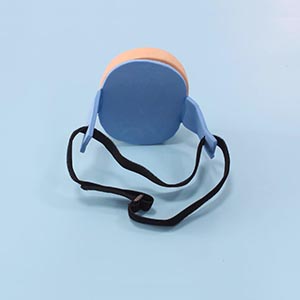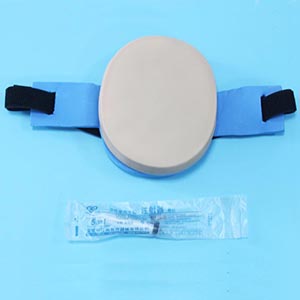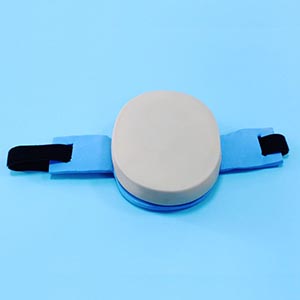Insulin injection is one of the core technologies in diabetes management, especially in the treatment of patients with type 2 diabetes and type 1 diabetes, and the correctness of injection technology directly affects the treatment effect and the quality of life of patients. Although the task of insulin injection is usually performed by the patient himself, healthcare professionals play a vital role in injection education, technical support, and clinical practice. To ensure that healthcare professionals are able to guide and assist patients effectively, insulin injection exercise modules have become an integral part of modern medical training.
The importance of insulin injection techniques in clinic

Insulin Injection exercise module
Insulin injection is not a simple procedure. Although insulin is a common treatment, the details of the injection process make a big difference. Whether it is selecting the injection site, adjusting the injection Angle, controlling the injection amount, or ensuring the depth and pressure of the needle insertion, any improper operation can lead to an imbalance in efficacy or skin damage to the patient.
1. Selection and management of injection site: Insulin injection is mainly performed subcutaneously, and the selection of injection site is crucial for drug absorption. The rotation of injection site can avoid the problem of local fat induration and uneven absorption.
2. Prevention of skin and tissue damage: The wrong injection Angle or pressure may lead to skin rupture or incomplete absorption, which in turn affects blood sugar control.
3. Reduce the occurrence of complications: Long-term improper injection may lead to patients' skin hardening, fat atrophy and other problems, and even cause serious infection or local bleeding.
Therefore, the technical details of insulin injection are not only crucial to the health of the patient, but also to the treatment effect of diabetes. In this process, the role of the healthcare staff is particularly important, they need to guide the patient properly and provide support during the injection process.
Why do healthcare professionals need insulin injection exercise modules?

1. Ensure proper operation and education
For healthcare professionals, teaching and mentoring is one of their core responsibilities. In clinical practice, many patients with diabetes, especially newly diagnosed patients, tend to have anxiety and fear of insulin injections in the early stages. Healthcare professionals need to help dispel this fear with the right guidance and ensure that patients can complete the injection with confidence.
However, many healthcare professionals do not have enough practical training to ensure that they can clearly and accurately teach patients insulin injection techniques. By using the insulin injection practice module, healthcare professionals can practice repeatedly in a risk-free environment to master a variety of common injection issues, such as needle Angle, injection pressure control, injection speed and dose adjustment, thereby providing more effective education to patients.
2. Improve the injection skills and clinical capabilities of medical staff
Although many health care workers participate in insulin injection procedures several times in clinical work, the injection procedures in clinical practice are not always standardized. For new nurses or young doctors entering the hospital, it may be due to insufficient experience in operation, resulting in inaccurate puncture or errors in the injection process.
The insulin injection exercise module provides a training platform that can simulate a variety of clinical situations to help healthcare workers perform repeated exercises without stress. Through this training, the medical staff can not only improve the accuracy of the operation, but also be more comfortable in the intense clinical work.

3. Reduce operating errors and improve patient safety
Research has shown that medical errors are a significant concern for patient safety, especially during insulin injections. Because insulin injection involves multiple details, such as correctly selecting the injection site, maintaining the correct Angle of the needle, etc., improper operation often leads to poor drug absorption and even complications.
According to statistics, about 10% of diabetic patients each year due to improper injection procedures lead to blood sugar fluctuations or local skin damage, which also reflects the lack of training of medical personnel in this procedure. Through the insulin injection exercise module, medical staff can learn and master the correct operation skills in a simulated environment, thereby reducing the errors in the actual operation and ensuring the safety of the treatment of patients.
4. Personalized training and assessment
Insulin injection techniques are not "cookie cutter" and different patients may face different challenges in different clinical Settings. For example, patients who are obese, elderly, or children will have different insulin injection techniques and need to adjust the injection site and Angle. Through the insulin injection exercise module, medical staff can conduct customized training according to the characteristics of different patients, thereby improving their ability to operate in special cases.
In addition, the insulin injection exercise module records the details of the training process to help the medical staff and trainers assess the accuracy and proficiency of their operations, thereby providing personalized feedback and suggestions for improvement based on actual performance.
Data support: Effectiveness of insulin injection exercise module
Several studies have validated the effectiveness of insulin injection exercise modules in improving the skills of healthcare workers. A study conducted in Europe found that after participants were trained to simulate insulin injections, the error rate of injection procedures decreased significantly, from 15% to less than 5%. At the same time, patients' satisfaction with the injection guidance of medical staff was also improved.
Another study involving 300 nurses showed that the nurses' injection skills and patient education improved significantly after being trained in a standardized insulin injection exercise module. These improvements not only reduce the injection discomfort of patients, but also improve the patient's compliance with the treatment and the success rate of blood sugar control.
Conclusion: Insulin injection skills of health care workers are critical
Insulin injection is not only a simple operation, it directly affects the patient's blood sugar control and treatment results. The insulin injection skills of medical staff not only affect the safety of patients, but also affect the trust and compliance of patients. Therefore, the provision of professional training equipment such as insulin injection exercise modules is not only to improve the operational skills of medical staff, but also to improve the quality of clinical care and the quality of life of patients.
With the continuous development of medical training equipment, insulin injection practice modules will continue to play a greater role in the future to help healthcare personnel master this key skill, so as to better serve patients and improve the overall treatment of diabetes.